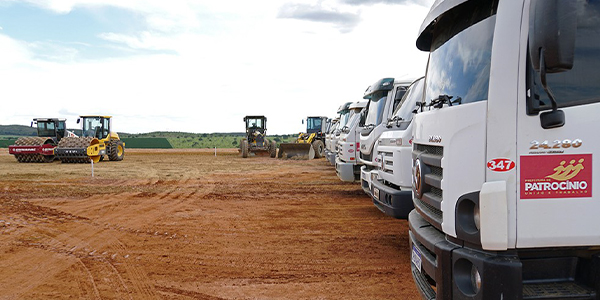Volume 10 | Issue 4

Wouldn’t it be wonderful if, when somebody builds a house, instead of always finding that the budget wasn’t enough to accommodate the original project, this person found out that the original figures had been conservative? And that, once the place is finished, there is money to spare? It might sound impossible, but that is what Contern has been trying to do for its clients. The company is a unit of Bertin, which started out as a slaughterhouse and has evolved into a huge Brazilian conglomerate.
What started as a way for Bertin to spend less money building its new industrial plants or refurbishing old ones soon evolved into a full-fledged subsidiary, which serves other industries and, more recently, local and federal governments. Now Contern aspires to become one of Brazil’s five biggest in the sector by 2010. According to trade magazine O Empreiteiro, Contern is already among the 20 biggest.
The company is already on its way to achieving this ambitious growth target. Excluding services to build premises for Grupo Bertin, Contern already brags over 200 million reais in contracts for both the private and public sectors. These figures translate in to a 200 percent growth rate for Contern in 2006 compared to 2005. As the company’s business development vice-president Rodrigo Dantas, puts it: “And now we are bidding for numerous other contracts, from small hydroelectric plants to roads and ports and in several we are about to strike a deal.”
Dantas’ confidence in getting the contracts is explained by Contern’s ability to offer prices below those offered by its competitors without compromising on quality. “Anyone can buy cutting edge machines, but in engineering, what matters is having the best, most experienced professionals,” he says.
Ready-made
Contern is what is known in the industry as a “turn-key” engineering company. This mode of contract has become more popular in Brazil, especially with local and federal governments, which increasingly demand that contracted companies stick to the budget, the time line and deliver the building ready.
Contern started working in public projects about three years ago. It was a very good time to do so. Not only has the Lula administration invested heavily in infrastructure projects, it promises to increase the taxpayer money earmarked for that purpose. And President Luiz Inácio Lula da Silva has vowed to get the private sector to participate more in the funding of infrastructure projects, which can translate in even more and bigger contracts for Contern.
Built to last
Contern is currently working on several small hydroelectric plants, work that has become a company specialty. One of Contern’s current jobs involves a hydrolectric plant and its environmental and social impact on a small Brazilian community. Contern engineers made an extensive study on the waterfalls and the rainfall in the region to ensure the smallest possible lake for the plant.
“That’s what makes the difference in this business: good thinking and great professionals who are able to carry-out a project with minimum costs and maximum performance,” Dantas says. The outcome has been small hydroelectric plants from 1 megawatt to 30 megawatts capacity, which have virtually no impact on the surrounding nature and on local residents’ lives.
Contern is also working on projects involving bridges and small roads. In this case, the challenge is to reduce costs and maintain quality. As Dantas explains, Contern recently built a bridge for a municipality in Brazil and managed to deliver it under budget. The work entailed several studies to evaluate the minimum number of pillars necessary to allow the bridge to support heavy trucks without collapsing.
Contern also was in charge of revamping the local airport at Lins, a town in the West of the state of Sao Paulo, Brazil’s richest. That led to a contract at another airport to build a hangar. In addition, Contern built Grupo Bertin’s port terminals in Brazil and was also involved in building a steel plant.
Human treasure
Dantas likes to emphasize that Contern’s recognition and success could only be achieved because of the people who work at the company. “We can have the latest machines and software, but in an engineering company what makes the difference are the brains,” Dantas says.
Therefore, it is no wonder that Dantas is proud of having attracted some of the best minds in the market to work for Contern. “We have brought very experienced people from other engineering companies to work for us,” Dantas says. “The person in charge of building a bridge usually will boast having built several bridges in various conditions and sizes, so he knows all the tricks of the trade and can come up with the best, cheapest, most efficient solution,” Dantas notes.
To ensure that Contern’s supply of great minds doesn’t dry out in a few years it has invested in a trainee program. Every year 20 graduates are selected in a lengthy process to spend one year in the company as a hired professional. “This way they already get used to the company culture too,” Dantas explains.
So in the fast moving world of engineering, Contern is well on the path to achieve its goal of becoming one of the five biggest engineering companies in Brazil. And what’s most important: it isn’t compromising quality on the way there.
Scott Ellyson, CEO of East West Manufacturing, brings decades of global manufacturing and supply chain leadership to the conversation. In this episode, he shares practical insights on scaling operations, navigating complexity, and building resilient manufacturing networks in an increasingly connected world.